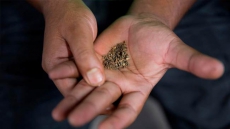Want a healthy heart? Turning off the TV, being active and eating an energy-rich breakfast of milk, cheese and cereals everyday could be the key, suggest researchers in a new study.
The findings of the study showed that people who watched more than 21 hours of TV per week were 68 per cent more likely to have high blood pressure and 50 per cent more likely to have diabetes.
Compared to those watching less than seven hours of TV per week, they were also twice as likely to have plaque buildup in the arteries, which is associated with an increased risk of stroke.
"Our results emphasise the importance of avoiding prolonged periods of sedentary behaviour," said lead researcher Sotirios Tsalamandris, cardiologist at the National and Kapodistrian University of Athens in Greece.
"These findings suggest a clear message to hit the 'off' button on your TV and abandon your sofa. Even activities of low energy expenditure, such as socialising with friends or housekeeping activities, may have a substantial benefit to your health compared to time spent sitting and watching TV." Instead of being sedentary, performing recreational activities, weight lifting, stretching bands or treadmill exercise while watching TV may also be a healthy alternative, Tsalamandris suggested.
Moreover, the researchers found that those who ate a high-energy breakfast tended to have significantly healthier arteries than those who ate little or no breakfast.
Eating high-energy breakfast also reduced arterial stiffness with only 8.7 per cent participants experiencing the condition, as compared to 15 per cent of those skipping breakfast and 9.5 per cent of those consuming a low-energy breakfast.
Similarly, only 18 per cent consuming a high-energy breakfast showed high plaque levels in the carotid arteries, as compared to 28 per cent of people skipping breakfast and 26 per cent of those consuming a low-energy breakfast.
The study, involving 2,000 people, will be presented at the American College of Cardiology's 68th Annual Scientific Session in New Orleans, US.




